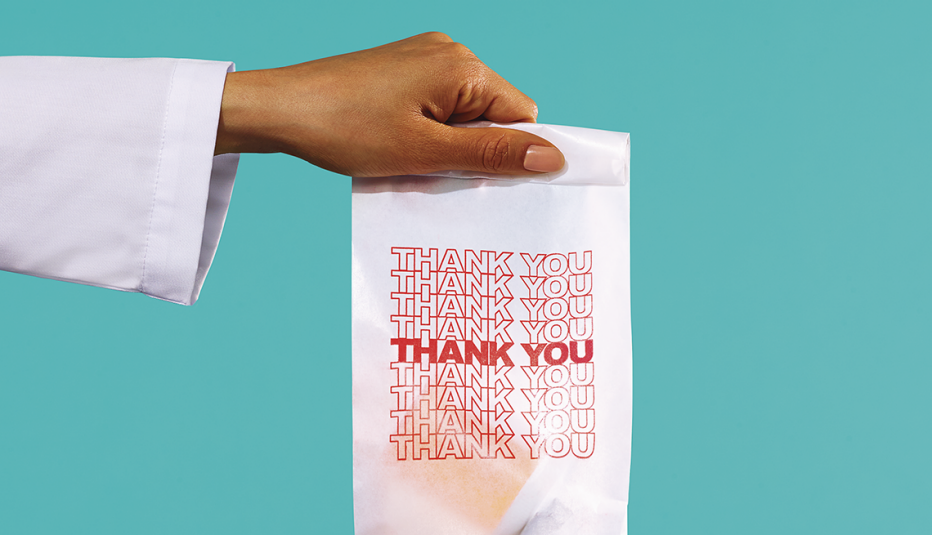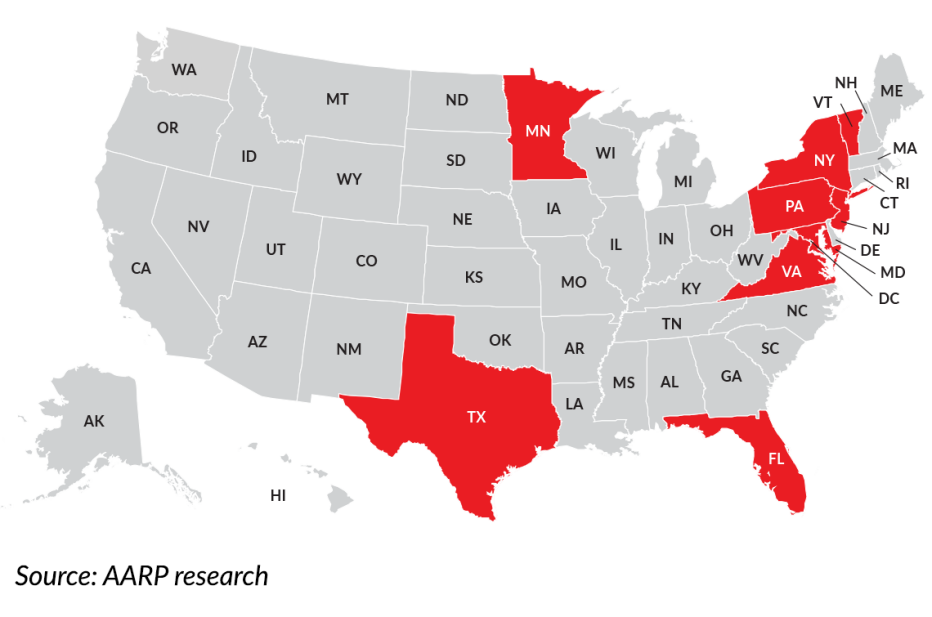Staying Fit


Jump to the State
Florida • Maryland • Minnesota • New Jersey • New York • Pennsylvania • Texas • Vermont • Virginia • Washington, D.C. • Saving on medicine
Save for in Illinois, there is no state sales tax on prescription drugs, but the same isn’t true for over-the-counter medicines and remedies. Only a handful of states and Washington, D.C., give consumers a break on these products that many older Americans rely on to help maintain their health and wellness.
Meanwhile, 41 states impose a sales tax on OTC medicines. As for Illinois, it imposes a 1 percent sales tax on prescriptions and on nonprescription items claimed to have medicinal value, such as aspirin and cough medicine. The state otherwise charges a 6.5 percent sales tax.


AARP Membership— $12 for your first year when you sign up for Automatic Renewal
Get instant access to members-only products and hundreds of discounts, a free second membership, and a subscription to AARP the Magazine.
States That Don’t Tax OTC Medicines


1. Florida
Along with exempting remedies prescribed by a licensed health care provider, the Sunshine State has a long list of over-the-counter drugs exempt from the tax. They include aspirin and other pain relievers, bandages, antacids, eye drops, sinus relievers, skin medications, sleep aids and a lot more.
2. Maryland
Sales of nonprescription medicine, medical supplies and medical equipment are not taxed. The list is long and includes everything from nonprescription drugs to antiseptics.
Estimate Your 2023 Taxes
AARP’s tax calculator can help you predict what you’re likely to pay for the 2023 tax year.
3. Minnesota
The North Star State does not tax over-the-counter drugs, but you won’t get a tax break on grooming and hygiene products.
4. New Jersey
The Garden State exempts all over-the-counter drugs prescribed by a doctor as well as many without a prescription. Like other states, it runs the gamut from aspirin to zinc.
5. New York
Everything from antacids to cold and flu medicines is tax-free in the Empire State. The tax applies to most cosmetics and toiletries, but some are exempt, including dandruff shampoos and sunscreens with an SPF factor of 2 or more.
6. Pennsylvania
Most nonprescription drugs and some toiletries are exempt from taxes in the Keystone State. The list includes toothpaste and toothbrushes, sunburn treatments and colostomy supplies.



































































More From AARP
10 OTC Medications That Become Risky With Age
Many popular pills can have surprising side effectsDrugstore Showdown: Which Is Cheapest, CVS, Walgreens or Rite Aid?
We filled a basket and totaled up the billMillions Skimp on Prescription Meds Due to Cost
An estimated 9.2 million adults cut back on prescriptions to save money in 2021
Recommended for You